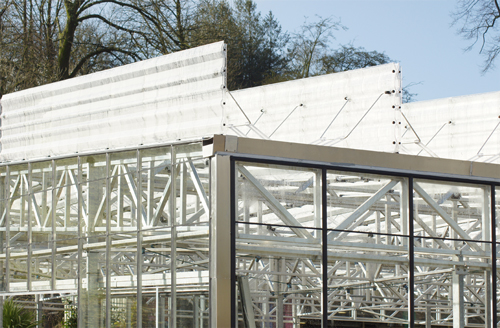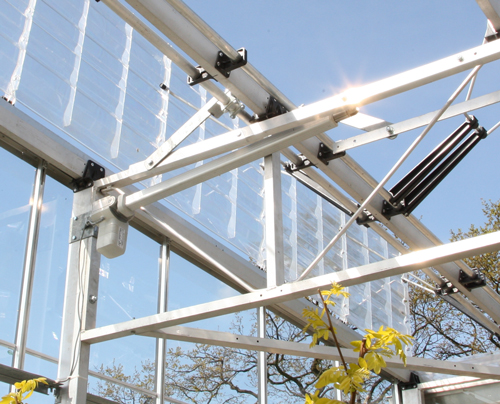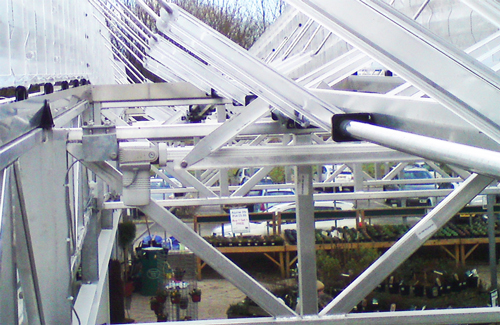SKF Linear motion, in conjunction with Acorn Industrial Services, provides fresh air for plant growers
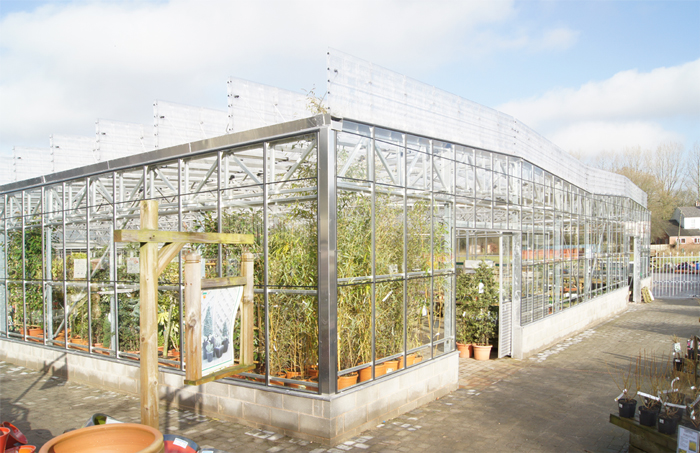
Integrated Linear Motion and control technology, supplied by SKF, the knowledge engineering company, and developed in conjunction with Acorn Industrial Services, an SKF Authorised Distributor, is being used as part of an innovative system for opening and closing the roofs of commercial greenhouses. Designed by Naturelight, the roof control system produces carefully managed growing conditions, retaining the protective structure of a conventional greenhouse while simultaneously providing the optimum balance between air temperature, air flow, rainfall and exposure to direct sunlight.
Traditional commercial greenhouses, with either manually opened or remotely operated roof sections, and polytunnels with lift-up side panels, can make it difficult to control ideal growing conditions, especially in the UK’s unpredictable climate. Additionally, the large areas of glass normally used in greenhouses, even when open to their maximum extent, filter out the beneficial effects of ultraviolet light and inhibit air flow and natural irrigation.
The system developed by Naturelight is based on a greenhouse with a low pitch greenhouse roof, of approximately 5° and a standard ridge height of 4.0 m, with roof panels manufactured from lightweight, rigid aluminium profiles with large, clear, UV stabilised polycarbonate inserts. The system is designed so that in both the open and closed position the roof panels enhance the overall structural rigidity. The panels in the fully open position of 90° from the horizontal, locked back to back, expose more than 90% of the roof area to the natural elements.
The opening and closing mechanism is controlled by a series of SKF Matrix actuators, fitted with encoders and grouped in sets of four, acting through gear mechanisms to rotate shafts running parallel with the lateral roof support beams.
Each shaft is connected to a sequence of cantilevered arms, which in turn are connected to the roof panels, so that as the shaft is turned by an actuator the panels are raised or lowered, with a full open to close, or close to open cycle taking 65 seconds.
Each set of actuators is controlled via a bespoke SKF SCU control unit, linked in turn to a central SKF multi-position switch unit, which is mounted at normal operator working height and effectively acts as an operator terminal. This enables greenhouse workers to control the position of each series of roof panels and also incorporates a walk-away function, so that panels can automatically be set to a predetermined position at the touch of a button, without an operator needing to remain at the terminal while panels are adjusted.
The actuators are compact and lightweight, are rated to IP66S, ensuring protection against high levels of humidity, and provide silent operation. All system components are rated for temperatures in excess of +40 °C and are fully sealed against the ingress of dust and moisture.
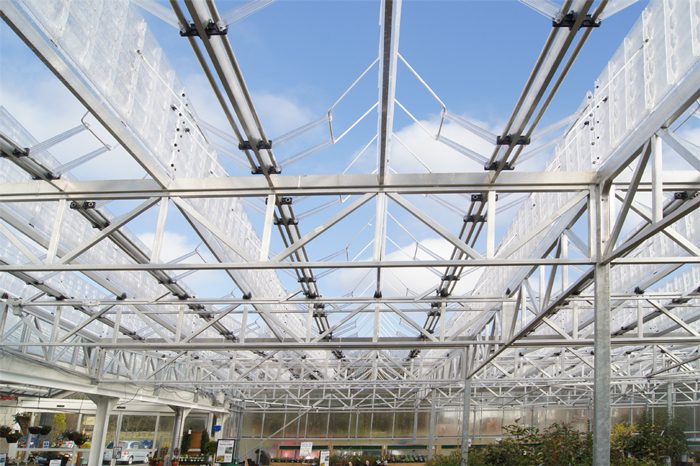
Ken Morris, Commercial Manager at Naturelight, is delighted with the system, “We’ve worked closely from the outset with Acorn and SKF, taking initial concept ideas through to a tried and tested system. Both companies have provided valuable product and technical support, including specialised programming of the control functions, to help us develop a solution that is simple to install, easy to use and extremely reliable in service. Customers are really pleased with the outcome, which improves the quality of their plant stock and enhances their retail facilities.”
“We now have a patented system, which is the only one of its kind to create a fully opening greenhouse roof. It is modular, so existing greenhouses are easy to extend, and the SKF products have the ability to interface with a PLC and external sensors, for example, for temperature, rainfall or humidity, allowing us to develop a fully automated solution in the future. The Acorn and SKF system enables us to offer important advantages to commercial growers, enabling them to maximise plant growth rates through ideal climatically controlled conditions inside each greenhouse. In effect, this improves their productivity, reduces waste and boosts the potential for greater profitability.”
